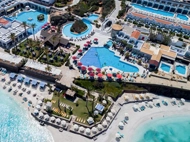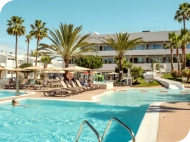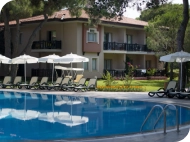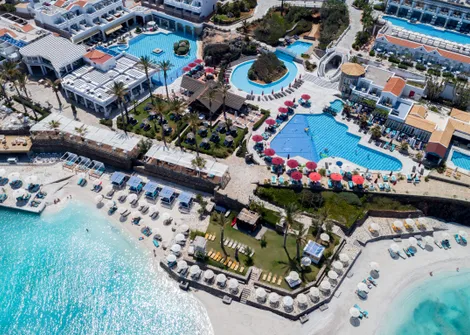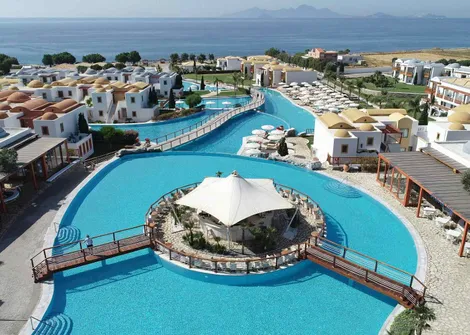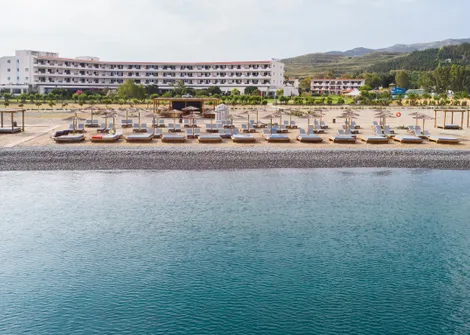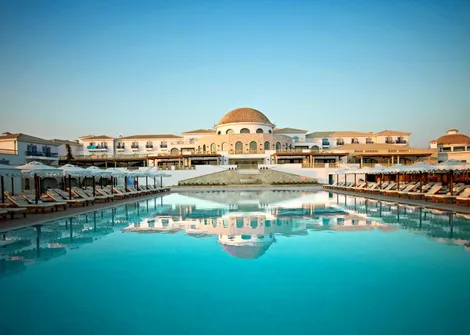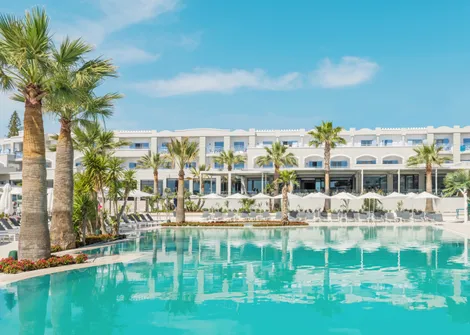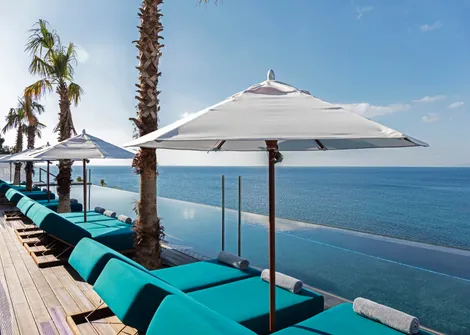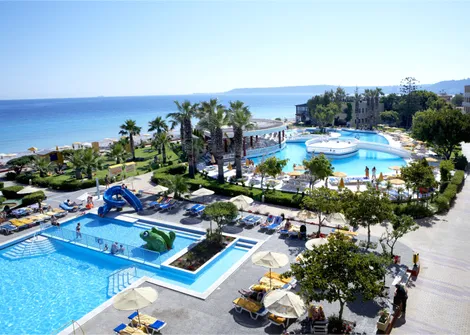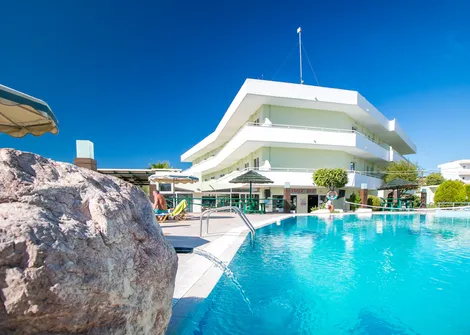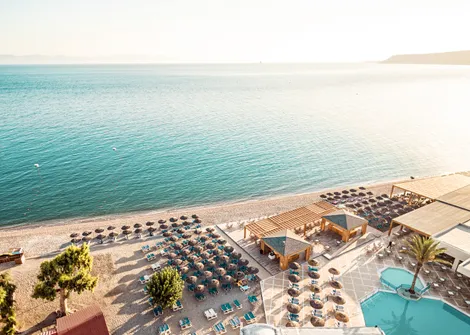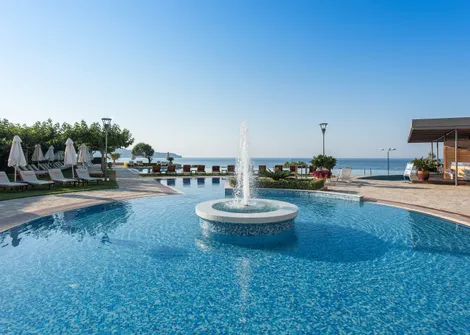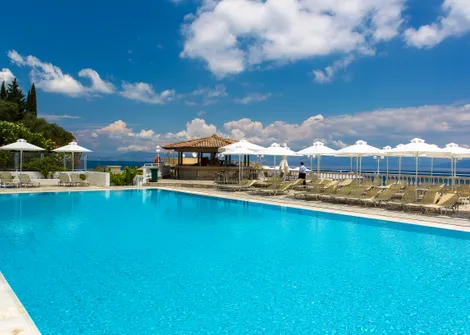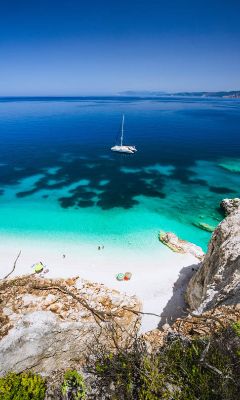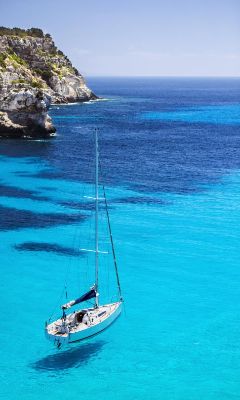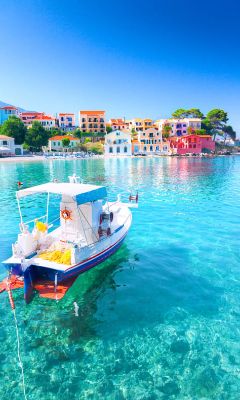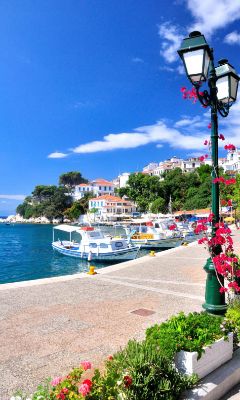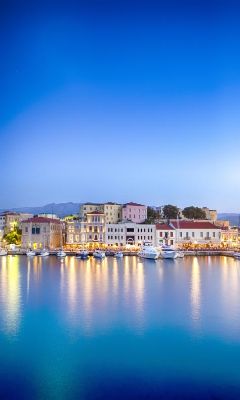Greek island holidays remain the top choice for sun lovers, foodies and adventure seekers. With balmy sunshine, ancient sites and harbourside tavernas, these rugged beauties know just how to reel you in.
And when you’re not lapping up blue skies on sandy coastlines, or trekking through whitewashed mountain villages, you’ve got the best nightlife in the Mediterranean at your feet. From their stunning good looks to the endless things to do, it’s no wonder Greek island holidays are a summertime favourite.
Greek islands at a glance
• Watch the sunset over the blue domes in Santorini
• Rub shoulders with A-listers in party hub Mykonos
• See loggerhead turtles in under-the-radar Kefalonia
• Uncover the medieval city of Rhodes
All the Greek islands have their own unique charm, but which is right for you? Let's dive in...
Best Greek island holidays for hopping
• Crete
• Kos
• Corfu
Always fancied island hopping? Why not pack multiple destinations into your Greek island holiday? Touch down in Crete and board the direct ferries for a day trip to Santorini, or from Kos to Rhodes. Or stay in Kavos and springboard to the tiny islands of Paxos and Antipaxos.
Best Greek island holidays for peace and quiet
• Kefalonia
• Lefkas
In search of less touristy Greek island holidays? Step away from it all with a peaceful stay in Kefalonia. You can spot sea turtles in Katelios Bay, ride horses through the Sami mountains and descend into the Drogarati caves, 60 metres below ground.
Laid-back Lefkas (or Lefkada) is another under-the-radar destination for those seeking quieter holidays to the Greek islands. This rugged beauty boasts pastel-coloured boulevards, fringed by wild waterfalls and striking natural caverns.
Best Greek island holidays for romance
• Santorini
• Corfu
For first-timers and romantics, Santorini is a must. All blue-dome chapels and whitewashed walkways, this has to be one of the most magical Greek island holidays for couples. Take the 300-step descent down to Amoudi Bay for a swoon-worthy sunset stroll.
Corfu is another island that will sweep you off your feet! Fall in love with sunbathing sessions in the Kassiopi Coves and horse rides through the olive groves in Sidari.
Best Greek island holidays for party animals
• Mykonos
• Kos
Holidays to the Greek islands aren’t limited to sun lounging and feta-eating. If you’re looking for a party scene to rival Ibiza, Mykonos is it! Behind its pretty facade, this island is host to the wildest celeb hotspot in the Med.
Kos is another must-visit nightlife hub with superstar club nights and lively bars. For all-night blowouts, make your way to Kardamena.
Best Greek island holidays for families with kids
• Rhodes
• Zante
Rhodes is one of the best Greek islands to explore with the kids. Alongside its sheltered beaches and shallow waters, its Old Town feels like an endless museum, with knights and ancient relics galore.
Away from party-central Laganas, Zante is another one of the best Greek islands for a family holiday. Watch turtles nesting on Kalamaki Beach, find thrills at Water Village and take in the sights from the Trainaki train. Why not make the most of your trip with a Greek island holiday package.
More Travel Guides
We also have travel guides available for destinations, including Corfu | Crete | Kefalonia | Kos | Lefkas | Lesbos | Mykonos | Rhodes | Santorini | Skiathos | Skopelos | Thassos | Zante

